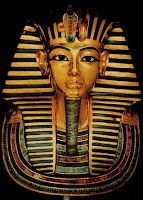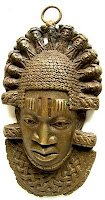“Africa is no historical part of the world [and] it has no development to show”
- Georg Hegel, German Philosopher.
Many more people would carry on with the thought process of Georg Hegel, considering Africa a blank slate! These thoughts had no truths in them and they were measurable to a pinch of salt.
Besides, Africa had and still has many things to offer to the world in all aspects we could think of; Politics, Economics, Architecture, Arts to mention but a few (as we shall see in future).
Africa had the first set of kingdoms, which defined political order in medieval Africa.
“And kingdoms in Africa are indeed among the oldest political institutions. They emerged in Africa from time even before time began”
- Adopted from an essay written for Raph Uwechu.
Based on the above statement, it is clear that Africa has had kingdoms since time in memorial!
The Pharaonic Egypt.
 It is believed that the first set of kingdoms arose in around 3400 B.C in the Nile Delta and the northern Nile in Egypt. These [two] kingdoms joined to form a great kingdom under the influence of the Pharaohs- this kingdom was later credited for the “daughter kingdoms” that sprung up elsewhere in Africa.
It is believed that the first set of kingdoms arose in around 3400 B.C in the Nile Delta and the northern Nile in Egypt. These [two] kingdoms joined to form a great kingdom under the influence of the Pharaohs- this kingdom was later credited for the “daughter kingdoms” that sprung up elsewhere in Africa.
The ancient Greeks believed that the Egypt of the pharaohs was a fountain of immense knowledge, striking mathematics and philosophy; and amazing architecture. All the names of the gods in ancient Greece had been adopted from Egypt.
According to Homer, the gods of Greece flew once a year to feast with their elder gods in Egypt. This connotes the importance of the Pharaonic kingdom to the spiritual necessities of the Greeks of pre-historic west.
This belief of kingdoms in Africa did not go well with the Europeans (at least not all)- they never welcomed it. The result was separation of Egypt from the rest of Africa. All this was
 “Ghana is the title given to their kings, but the name of the kingdom of Awkar. In this year 1067 [or 460 of the Islamic calendar], their king is Tunka Manin who came to the throne in 1063. He rules an enormous kingdom, and wields strong power”
“Ghana is the title given to their kings, but the name of the kingdom of Awkar. In this year 1067 [or 460 of the Islamic calendar], their king is Tunka Manin who came to the throne in 1063. He rules an enormous kingdom, and wields strong power”
